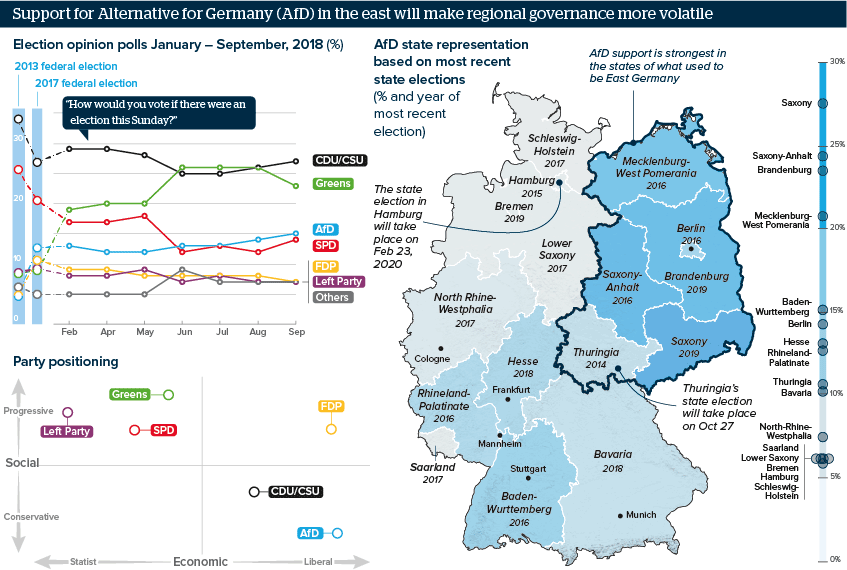The AfD will make German coalition formation harder
Uneasy centrist coalitions at the state and federal level will emerge from the AfD’s rise
Source: Landtag NRW, Infratest dimap Deutschlandtrend
Outlook
Refugees, regional inequality between east and west, and the sense of feeling “second class” are fuelling the AfD’s rise in eastern Germany.
Despite the AfD’s growing influence, the policy of other parties is to ostracise it. With majorities becoming rarer, this leaves the CDU, in particular, with no alternative but to go into coalition with uneasy partners in order to keep the AfD out of power. This will make coalition formation more complicated and government stability increasingly fragile.
The prospect of prolonged economic downturn that stalls public funding (despite a planned fiscal injection), perpetuates rural depopulation, increases unemployment and more broadly intensifies regional inequality will help consolidate AfD support.
Impacts
- The AfD is forecast to perform strongly again in the eastern state of Thuringia on October 27.
- This could cause friction between the CDU’s leadership and eastern representatives, some of whom would support negotiating with the AfD.
- The refusal of other parties to ally with the AfD will likely widen divisions between the party’s moderate and more extreme factions.
- The AfD will struggle to make noteworthy inroads in western Germany, where the traditional parties have a more stable base.
See also
- German election adds pressure on mainstream parties - Oct 28, 2019
- Germany will intensify its counter-extremism policy - Sep 26, 2019
- German fiscal expansion is unlikely despite concerns - Aug 21, 2019
- More graphic analysis
